"We’re going to put up a fight": Brown Grove residents push to save historic Black community
Brown Grove, Virginia – Brown Grove, Virginia's first rural historic district, is under threat from the planned construction of a massive Wegmans distribution center. TAG24 News spoke with community activists about their fight to save the historic Black neighborhood.
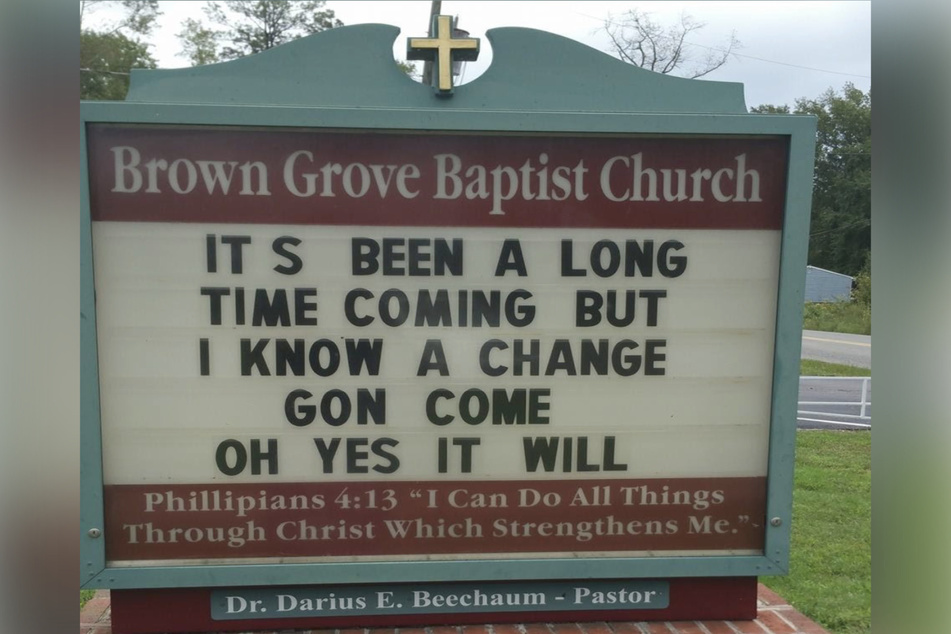
Brown Grove, established around 1870 after emancipation, is located in the wetlands of Hanover County, Virginia.
Even before the settlement was built, the wetlands played an important role in free Black history as a place of refuge for those who escaped enslavement. There were few white farms and plantations in the immediate area because the environmental conditions made it difficult to grow crops like corn and tobacco.
After Brown Grove's founding matriarch Caroline Dobson Morris passed away, she left her property to her descendants. Many who live in the neighborhood today trace their lineage back to her.
One of those residents is 78-year-old Charles Morris, who has fond memories of growing up in Brown Grove.
"Just about every place in Brown Grove, you could walk there by a little path," he recalled to TAG24. "Because it's a wetland, there were certain creeks, and you could take a path there. It was so much fun."
But years of industrial development have begun to erode the places and spaces that feature so distinctly in Charles' memory.
Interstate-95, built in the 1960s, bifurcated the residential community, leading to a sharp increase in traffic and air pollution. A cement plant, an airport, and even a landfill have also made their home in the historic district – without the consent of its residents.
As they saw their lands gobbled up by big business interests, Brown Grove's Black residents received little compensation in return. "Millions of dollars they’re raking in, but the families got very little," Charles said of the airport expansion.
After these developments, Charles remembered, "Every time I went out there, I would want to cry because it was a beautiful area and now it seems to be going down." Even the natural paths he loved to tread in his youth are gone.
"All of this history is just going down the drain," he lamented.
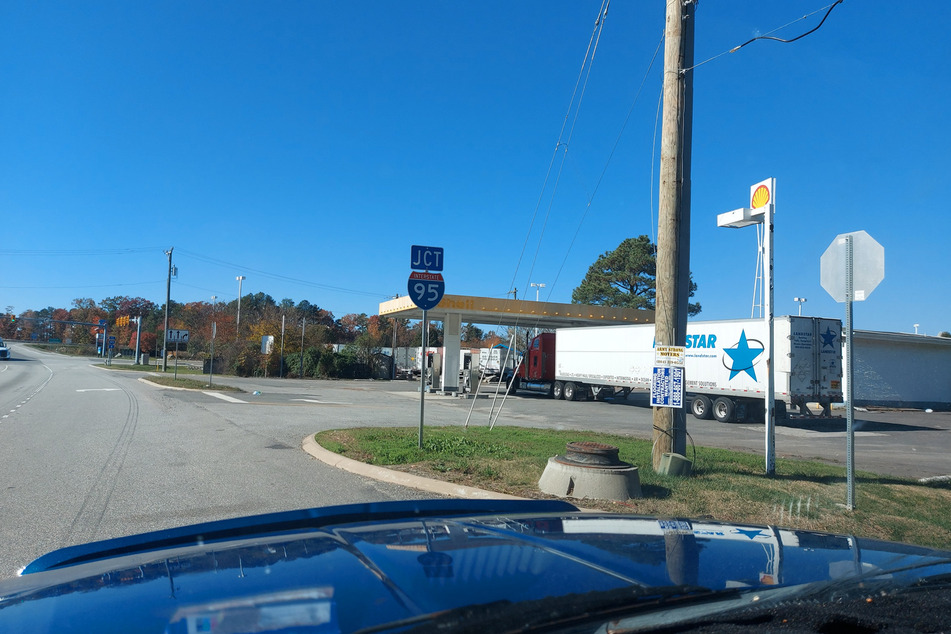
Wegmans distribution center threatens further destruction
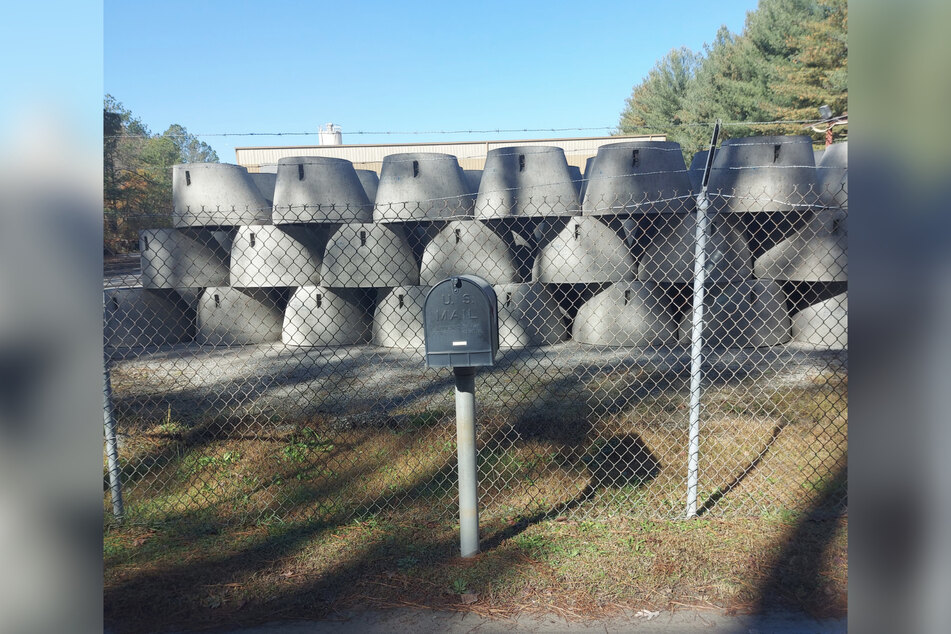
Residents fear that Brown Grove's decimation will only get worse with the construction of a 1.1-million-square-foot Wegmans distribution center planned for the area.
The facility will not be a grocery store, nor will it provide food or resources to the surrounding neighborhood. Instead, it will serve as a storage center for goods shipped out of the community to stores across the mid-Atlantic region.
Previous industrial expansion has already led to a drastic increase in air and water pollution in Brown Grove, impacting not only the quality of life but also the health and safety of residents. Emissions can lead to asthma and other respiratory conditions that disparately impact Black Americans. Cancer is also a dreaded possibility.
Then there's the sheer amount of vehicles on the roads, which has led to more traffic accidents and made it difficult for some residents to get out of their own driveways.
"It's really getting hard to live here," said local resident Alonzo Dendy.
With the construction of the Wegmans center, community members worry that pollution will get even worse. The destruction of the wetlands will mean greater flooding in the area, as well as a sharp uptick in the number of vehicles passing through the neighborhood.
Despite receiving numerous assurances that Wegmans will be a "good neighbor," community members are not convinced. They have seen too many other examples of industries moving in and failing to respect their lives and livelihood.
Past and present residents have cast much of the blame for that devastation on Hanover County, among others. "They're trying to move us out," said local activist Kimberlyn Harris-Washington.
She believes the county sees Brown Grove as prime real-estate territory, and the people living there as unlikely to stand in their way.
"Where do Black people live? Where do Black people establish a community if you're constantly putting stuff in there to endanger our lives?" Kimberlyn asked.
The fight to save Brown Grove
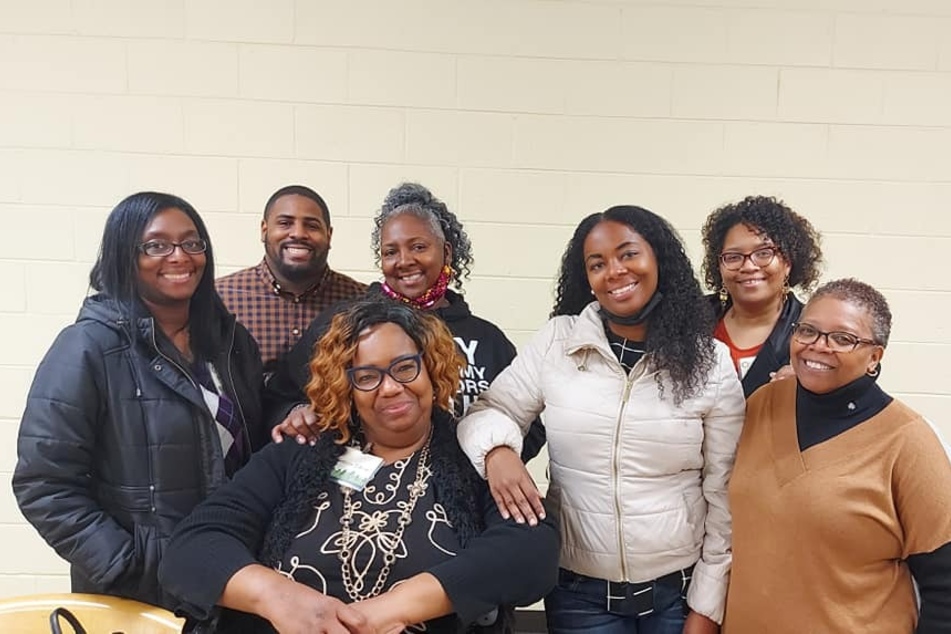
After the police killings of George Floyd and Breonna Taylor and the start of the global coronavirus pandemic, younger community members had had enough.
They established the Brown Grove Preservation Group to maintain their historic lands and heritage.
In addition to working their day jobs and supporting their families, the core group of seven members devotes hours of time each week to studying legal documents, speaking with government agencies, and working with other non-profit and activist organizations.
They have also had to take on the work of making phone calls and going door to door to speak with community members about the Wegmans development project, a job they said the county was supposed to do.
Renada Harris, one of the leading activists in the group, described this labor as "overwhelming."
"Every single step is new to us," she said. "I’m a hairstylist. I don’t know anything about all this stuff."
In addition to her work, Renada has paid for courses she has not been able to take because the fight to save Brown Grove is consuming so many of her free hours. "My personal things have been put on the backburner. I would definitely like to move forward with my life," she said.
The group has found strong community support for their efforts, but they said it has been difficult to get some of the older residents actively involved. Renada explained that many older Black community members fear retaliation if their names are attached to preservation efforts, but she and her fellow activists remain undaunted.
"We were just tired of our community being taken advantage of and run over time after time," Alonzo said. "We are not our ancestors, so we’re going to put up a fight this time."
"We are not afraid of repercussions like they were," Kimberlyn added.
"Overwhelmed" but determined
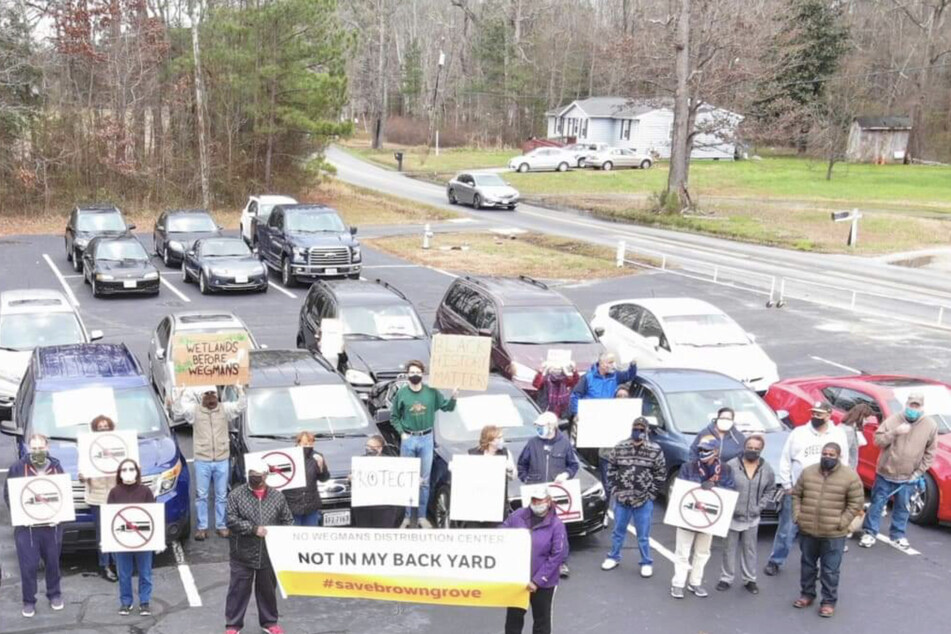
For preservationists, the struggle to save their neighborhood has been an uphill battle.
Community members say the Wegmans construction site is also the location of their ancestors' historic burial grounds. They filed an injunction to stop construction there, but the request was denied.
Communications with the governor's office, Army Corps of Engineers, and Virginia Department of Environmental Quality (DEQ) have gone nowhere, the activists said.
As a result, the lands are being cleared even as the search for unmarked graves continues.
Together with the NAACP and Protect Hanover, the preservationists filed a lawsuit against the Water Control Board and DEQ. But Renada warned that "by the time we get a court date, the building may be up."
This is all happening despite Brown Grove receiving recognition as a historic district in the state, which should provide certain protections.
"If you look at some of the documentation and some of the regulations, it's clear in black and white what they're supposed to do, but agencies are not enforcing them," Renada insisted.
Despite these challenges, the Brown Grove Preservation Group remains determined, and their activities have succeeded in delaying the construction for over a year. Now they are calling on the wider community for support and have set up a GoFundMe page for donations.
Central to their advocacy is the knowledge that struggles like theirs are happening all over the state and country. "Our fight has a lot to do with everyone else’s fight because we are not the only place where this is going on," Kimberlyn said.
"We have to bring it to the national level and let people know what's going on at the local levels. We've got to vote about it."
Cover photo: Brown Grove Preservation Group

